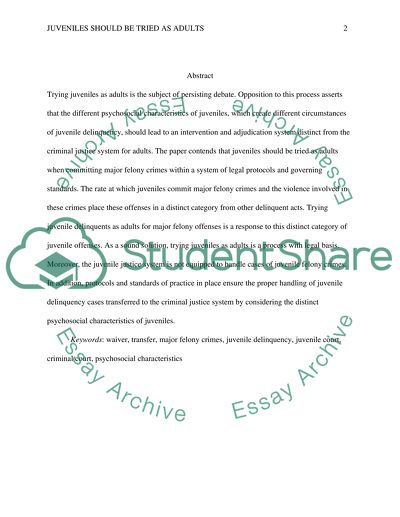Cite this document
(“Juveniles should be tried as adults when committing major felony Research Paper”, n.d.)
Juveniles should be tried as adults when committing major felony Research Paper. Retrieved from https://studentshare.org/english/1461532-juveniles-should-be-tried-as-adults-when
Juveniles should be tried as adults when committing major felony Research Paper. Retrieved from https://studentshare.org/english/1461532-juveniles-should-be-tried-as-adults-when
(Juveniles Should Be Tried As Adults When Committing Major Felony Research Paper)
Juveniles Should Be Tried As Adults When Committing Major Felony Research Paper. https://studentshare.org/english/1461532-juveniles-should-be-tried-as-adults-when.
Juveniles Should Be Tried As Adults When Committing Major Felony Research Paper. https://studentshare.org/english/1461532-juveniles-should-be-tried-as-adults-when.
“Juveniles Should Be Tried As Adults When Committing Major Felony Research Paper”, n.d. https://studentshare.org/english/1461532-juveniles-should-be-tried-as-adults-when.


